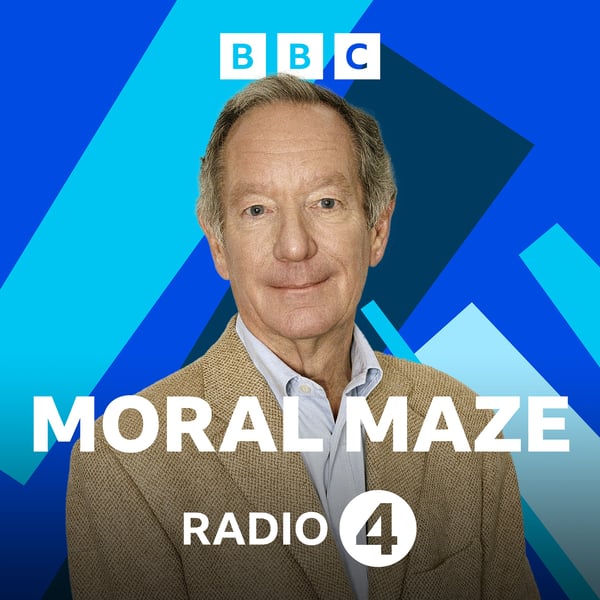Authors of Our Own Misfortune?
Moral Maze
BBC
4.5 • 609 Ratings
🗓️ 20 October 2016
⏱️ 43 minutes
🧾️ Download transcript
Summary
This week the Moral Maze asks "in a society where resources are scarce, should we take account of whether people have contributed to their own misfortune?" The issue has been raised by Phil Kay, the assistant chief constable of Leicestershire. Like other public bodies, the force is struggling to stretch resources to cover demand. He told his local newspaper that he would "far rather" officers focus on preventing crime and protecting the public than spend their time investigating break-ins where carelessness may have played a role. In time-honoured fashion Mr Kay says his remarks have been taken out of context, but does he have a point? This week it's been reported that some NHS authorities are considering closing hospitals to meet a £22 billion savings target. At the same time demand from patients has never been greater. Is making an explicit connection between our lifestyle choices and the chances of getting treatment for the consequences of them the most just and moral way to allocate resource? Or is it the worst kind of victim blaming? There are already many ways in which we reward so called "good behaviour" - no claims bonuses, reduced premiums in return for fitting better security, tax breaks for pension savings. Wearable technology like fitness trackers will make looking after ourselves even more feasible in the future, so why not punish "bad behaviour"? We already have sin taxes, and they're called that for a reason. When the cost of our collective sins is so great, is it morally justifiable to expect the rest of society to pick up the bill for our moral blameworthiness? Or is the very notion a kind of mass hardening of the heart that weakens the bonds of our collective humanity?
Transcript
Click on a timestamp to play from that location
| 0:00.0 | You're listening to a programme from BBC Radio 4. |
| 0:03.7 | Good evening. Are you sure you closed all your windows? |
| 0:07.1 | According to a leading policeman this week, if he left one open and a burglar came in, well, that's your fault. |
| 0:12.0 | And his coppers have better things to do than investigate what amounts to a preventable crime. |
| 0:16.7 | Phil Kay, Assistant Chief Constable for Leicestershire, promptly got it in the neck from the Daily Mail, |
| 0:21.6 | and in time-honoured fashion said he was merely posing a question, and his remarks had been taken out |
| 0:25.9 | of context. That context is one of the most vexed issues of our straightened times. We live in a period |
| 0:31.5 | of rapidly increasing demand for services, police, health, welfare, and dwindling ability to pay for |
| 0:37.2 | them. They have to be rationed |
| 0:39.0 | somehow, so why not take account of those who contribute to their own misfortune? The NHS is |
| 0:44.7 | already extremely reluctant to give alcoholics liver transplants. Should the fat be pushed down the |
| 0:50.4 | bottom of the list for replacing hips and knees cropped by their obesity. |
| 0:58.8 | And as far as welfare is concerned, what was actually wrong with the Victorian distinction between the deserving and undeserving poor? |
| 1:02.1 | We've already got rewards for a good record, think no claims bonuses, |
| 1:06.1 | and penalties for poor lifestyle choices, so-called syntaxes on tobacco, booze and sugary stuff. |
| 1:12.0 | There's a whole new science of behavioural economics to nudge, cajole or beat us into doing what others think is best for us, for them, for us all. |
| 1:20.6 | Is it morally acceptable to make me pay for your carelessness or bad behaviour? |
| 1:25.1 | Or is this victim-blaming, an insidious kind of social engineering, |
| 1:29.3 | chipping away at our personal liberty? So moral maize tonight, our panel, Claire Fox from the Institute |
| 1:33.9 | of Ideas, the former Conservative Cabinet Minister Michael Portillo, and McElvoy, senior editor on the |
| 1:38.6 | economist, and the priest and polemicist, Giles Fraser. Jiles, where do you stand on the general |
| 1:42.5 | question, assuming your windows are closed? Well, I don't believe in this Victorian idea of the undeserving poor. I think people are deserving on the basis of their need and not on the basis of their virtue. Anne a Calvoy, between coughs. Sorry, between coughs, which I'm probably going to trouble the NHS. Yes, we do have ideas of just dessert. |
... |
Please login to see the full transcript.
Disclaimer: The podcast and artwork embedded on this page are from BBC, and are the property of its owner and not affiliated with or endorsed by Tapesearch.
Generated transcripts are the property of BBC and are distributed freely under the Fair Use doctrine. Transcripts generated by Tapesearch are not guaranteed to be accurate.
Copyright © Tapesearch 2025.

